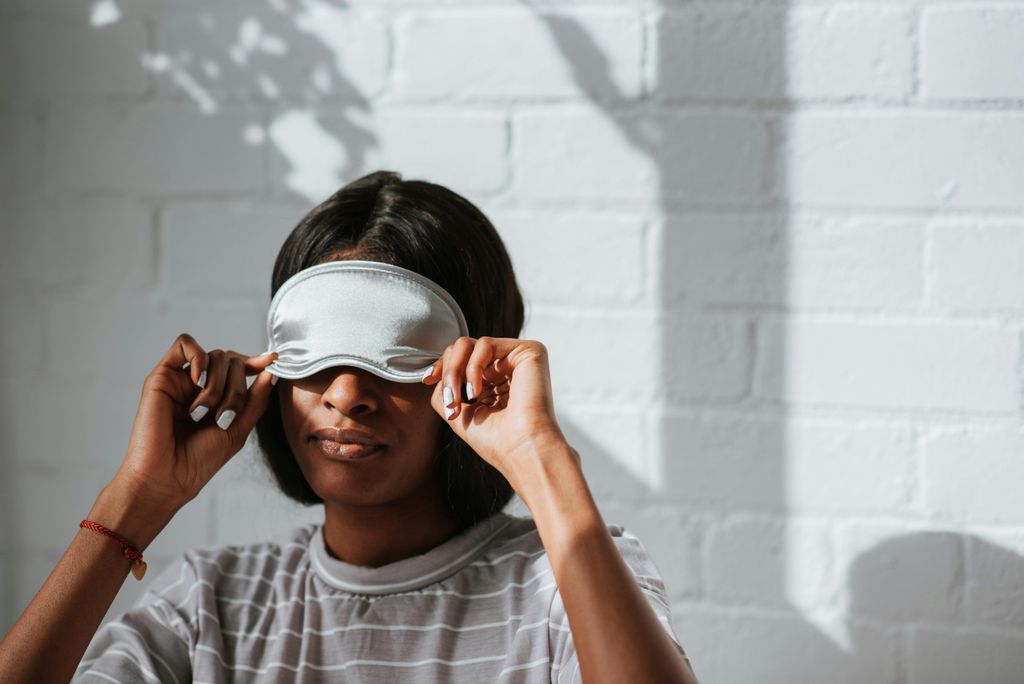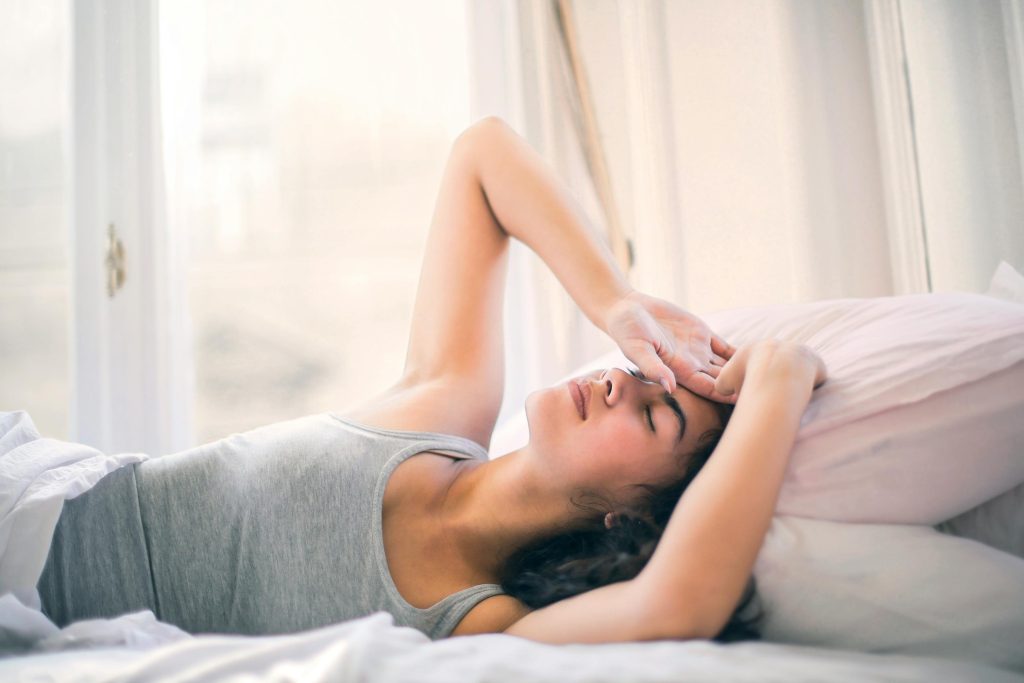What are the Best Adaptogens for Menopause Relief? Part 2

In Part 1, we explored the vital connection between adrenal support and menopause, emphasizing the role of stress management and overall well-being during this transition. In Part 2, we look into the power of adaptogens—natural herbs that can help your body adapt to stress and hormonal fluctuations. Learn more about what adaptogens are good for….

In Part 1, we explored the vital connection between adrenal support and menopause, emphasizing the role of stress management and overall well-being during this transition. In Part 2, we look into the power of adaptogens—natural herbs that can help your body adapt to stress and hormonal fluctuations.
Learn more about what adaptogens are good for.
These herbs offer targeted support for perimenopause and menopause, promoting balance in areas such as adrenal health, sleep, mental performance, and more. From maca to schisandra, we’ll guide you through the best adaptogenic herbs for easing menopausal symptoms and restoring harmony during this pivotal time.

9 Adaptogenic Herbs to Help with Perimenopause and Menopause
Let’s dig into the adaptogenic herbs. I’ve listed them alphabetically for easy reference as you explore their unique science-backed benefits and how they can help support your body during this transition into a new chapter of vitality and balance.
Ashwagandha
Highlights: Supports mood balance, hot flashes, vaginal dryness, and healthy blood sugar control.
We’re starting this list with Ashwagandha because it starts with ‘a,’ but it equally deserves this top spot based on its numerous possible benefits for easing perimenopause and menopause.
Let’s start with the most direct study, which involved 100 perimenopausal women. Researchers explored the effects of women taking 300 mg of Ashwagandha root daily for eight weeks on quality of life and perimenopausal symptoms.
Taking Ashwagandha led to a noticeable improvement in mild to moderate menopause symptoms, including:
- Improved mood
- Reduced hot flashes and sweating
- Less physical exhaustion
- Improved vaginal dryness
Overall, women who took Ashwagandha reported a better quality of life.
Ashwagandha is often recognized for its ability to support a healthy stress response. In a placebo-controlled study with 58 healthy adults, participants took 300 mg of Ashwagandha twice daily, totaling 600 mg for eight weeks. Those who took Ashwagandha experienced significantly reduced perceived stress, lower cortisol levels (the “stress hormone”), and improved sleep quality.
It’s also promising for memory support. A study of 13 healthy volunteers explored the effects of Ashwagandha supplementation on memory and cognitive function. Participants took 400 mg of Ashagandha extract and underwent cognitive testing every hour for six hours.
Those taking Ashwagandha experienced improved cognitive performance, including enhanced sustained attention and increased short-term memory.
As mentioned in Part 1, maintaining balanced blood sugar levels is crucial for managing menopause symptoms, and Ashwagandha may help support this process. While research is ongoing, one clinical study showed that participants who took 3g of Ashwagandha daily for 30 days experienced a 12% reduction in blood sugar levels.

Bacopa Monnieri
Highlights: May support mood balance and cognitive function.
Beyond the typical expectations of an adaptogen in supporting stress resilience, Bacopa Monnieri also provides cognitive support during menopause.
A meta-analysis with over 400 participants explored the effects of Bacopa Monnieri supplementation on cognitive function. Those taking the herbal extract showed significantly improved reaction time compared to those who didn’t.
Another study focused on the effects of Bacopa Monnieri on mood and stress reactivity. Participants completed mood and cognitive assessments before and after undergoing a multitasking framework at baseline and 1 and 2 hours post-dosing.
Participants who took 320 mg or 640 mg doses of Bacopa showed improvements in cognitive performance. Positive effects on mood were also noted, with increased ratings of alertness and contentedness, especially at the 640 mg dose.
Black Cohosh
Highlights: May support hot flashes, mood balance, and promote better sleep.
A meta-analysis of studies explored the effects of Black Cohosh extract on menopause symptoms. Overall, Black Cohosh significantly reduced menopause symptoms compared to the placebo, with noticeable improvements over time.
Participants began noticing greater symptom improvement after four weeks. Over three months, those using the extract experienced the biggest improvements in hot flashes, less sweating, and better sleep.
Researchers believe Black Cohosh is highly effective because it interacts with key brain receptors that regulate body temperature, mood, and sleep. These receptors include serotonin, dopamine, GABA, and opioid receptors. By influencing these pathways, Black Cohosh may help alleviate symptoms such as hot flashes, mood swings, and sleep disturbances.
Ginseng
Highlights: May support enhanced energy, promote arousal, and overall symptom relief.
Ginseng is known for its ability to kick your energy up a notch by improving energy metabolism and its antioxidant properties. But its benefits to perimenopause and menopause go beyond.
A meta-analysis of 15 studies explored the effects of ginseng supplementation on menopause symptoms. They included various forms of ginseng, including:
- Korean Red Ginseng
- Fermented Korean Red Ginseng
- American Ginseng
- Panax Ginseng
Participants took between 200 mg to 3000 mg per day for two to 16 weeks. Overall, women taking ginseng supplements saw improvements, especially in reducing menopausal symptoms like hot flashes and boosting their quality of life. However, the analysis didn’t find any major changes in sexual function or hormone levels.
Don’t give up hope on improving your sex life though! One study recorded improvement in this area after Korean Red Ginseng (KRG) supplementation in menopausal women.
Thirty-two menopausal women were randomly assigned to receive either 1 gram Korean Red Ginseng (KRG) or a placebo daily for eight weeks, followed by a 2-week washout period, and then switched to the other treatment. While there were no significant changes in hormones, women did report improved sexual arousal, frequency, and satisfaction.
Animal studies suggest ginseng may improve arousal by relaxing certain smooth muscles in areas like the clitoris and vagina through a process involving nitric oxide (NO), which helps increase blood flow. Blood flow is crucial for sexual arousal, and blocking nitric oxide reduces ginseng’s ability to have this effect.

Holy Basil
Highlights: May aid cognitive function, stress management, and glucose balance.
Often referred to as “The Elixir of Life,” holy basil, or tulsi, is used in traditional medicine to treat a wide range of conditions. And while not directly studied in menopausal women, we’ll look at some of holy basil’s potential benefits.
The first is its potential to improve cognitive function while improving stress resilience. A review of four studies found significant improvements in mood and cognitive function regardless of age, gender, formulation, or dose.
A trial with 40 young adults found that taking 300 mg of tulsi daily for four weeks improved cognitive flexibility, short-term memory, and attention. However, the benefits were only noticeable after the first two weeks. Three other studies in the review found that higher doses of tulsi over a more extended period significantly improved stress resilience.
The review also highlighted holy basil’s potential to promote balanced blood sugar, offering valuable benefits during menopause by helping manage changes in glucose metabolism. Overall, participants taking holy basil had improved fasting and post-meal glucose levels.
Finally, researchers highlighted holy basil’s powerful effects by increasing glutathione and enhancing the activity of enzymes that help clear out harmful free radicals. These free radicals can damage cells, especially when the body is low on oxygen or exposed to toxins. By reducing oxidative stress, holy basil may help ease symptoms associated with menopause like hot flashes, mood swings, and tiredness.
Licorice Root
Highlight: Support for hot flashes.
If you’re looking for a go-to for hot flashes, licorice root might be the one for you.
In a study exploring the effects of licorice root on menopause symptoms, women took either 990 mg of licorice root or a placebo daily for eight weeks. Women taking licorice root reported a significant decrease in hot flashes that lasted two weeks after stopping the supplement.
Hot flashes returned after those two weeks, so if you want to try licorice root, work with your health practitioner to determine the right dosage and duration for ongoing relief. A healthcare professional can help you create a plan that balances effectiveness and safety, ensuring you get the most out of this natural remedy.
If high blood pressure is a concern for you, it may be best to avoid taking licorice root or talk to your health practitioner first. A study of 28 healthy volunteers explored the effects of licorice root on blood pressure. Participants took a small dose of 100 mg daily for two weeks.
Those taking licorice root experienced an average systolic blood pressure (top number)increase of 3.1 mm Hg. They also had 30% lower levels of renin (a hormone that regulates blood pressure) and 45% lower levels of aldosterone (a hormone that helps control blood pressure and fluid balance).
To reap this benefit for licorice, you need whole licorice that has glycyrrhizin. That means you cannot use deglycyrrhizinated (DGL) licorice which is typically for gut health. Some people are genetically prone to have significantly increased blood pressure in response to whole licorice, making it an unsafe supplement for them. If your blood pressure rises significantly after introducing licorice, stop taking the licorice. Keep in mind also that licorice is a component of many adaptogenic and immune support blends, so it’s important to read labels and check with your doctor or pharmacist when introducing a new herb.

Maca
Highlights: May assist with hormone balance, hot flashes, night sweats, and mood balance.
Traditionally used by the native people of Peru for its benefits beyond hormone balance, including fertility, energy, and libido, maca has gained scientific attention primarily for its hormone-balancing effects in early post-menopausal women.
A placebo-controlled study of 124 women explored the effects of maca on menopause symptoms. Participants took one gram of maca twice daily for either three or four months. Researchers measured hormone levels and evaluated menopausal symptoms using specialized questionnaires and scales that assess the severity of menopause-related issues.
Those taking maca had significantly increased estrogen levels and reduced Follicle-Stimulating Hormone (FSH). This is important because, during menopause, estrogen levels naturally decline, leading to symptoms like hot flashes, night sweats, and mood swings.
As estrogen decreases, FSH levels often rise as the body tries to stimulate hormone production. Elevated FSH can signal hormonal imbalance and worsen menopausal symptoms. Therefore, maca may help correct these hormonal imbalances.
Participants taking maca also experienced significantly less frequent and less severe hot flashes and night sweats.
Based on animal studies, researchers believe maca helps menopause symptoms due to its plant sterols content. Plant sterols may act as biochemical triggers to help the body itself increase or reduce the production of individual hormones, providing hormonal balance depending on age and gender.
Rhodiola (Rhodiola Rosea)
Highlights: May contribute to emotional well-being, symptom relief, and energy levels.
A study of 220 menopausal women explored the effects of Rhodiola combined with Black Cohosh on common menopausal complaints. For 12 weeks, women took one daily dose of either:
- 200 mg of Rhodiola with 6.5 mg of Black Cohosh
- 6.5 mg of Black Cohosh
- 500 mg of Black Cohosh
Women taking the Rhodiola and Black Cohosh combination experienced significantly more relief from menopause symptoms than Black Cohosh alone or a placebo. Women taking the combination also expressed a significantly improved quality of life compared to all other treatments, especially in emotional and health areas.
Researchers believe Rhodiola rosea extracts may help manage the negative effects of reduced estrogen levels, which often occur during menopause.
It may act as a selective estrogen receptor modulator (SERM), which can have estrogen-like effects in some tissues while blocking or reducing estrogen’s effects in others. By functioning as a natural SERM, Rhodiola may help relieve menopause symptoms and provide added health benefits, such as protecting the brain, and heart, and helping with stress and fatigue.

Schisandra
Highlights: Overall symptom support with a focus on hot flashes, sweating, and heart palpitations.
Schisandra is gaining attention for its potential benefits in managing menopausal symptoms. A placebo-controlled study of 41 women ages 40 – 70 complaining of menopausal symptoms explored whether Schisandra could serve as a safe and effective symptom relief. Women took 784 mg of Schisandra extract daily for six weeks and tracked symptoms for 12 weeks.
Women taking Schisandra experienced a 40% reduction in overall symptoms, especially hot flashes, sweating, and heart palpitations. There was no significant improvement in sleep, vaginal dryness, or sexual and urinary function. Researchers also determined that it was relatively safe for use with no adverse effects other than mild headache.
While not fully understood, researchers believe Schisandra provides menopause relief, especially for hot flashes, due to its potential benefits for vascular health. The extract’s antioxidant properties could improve blood vessel function and reduce oxidative stress, providing some relief.
How to Take Adaptogens
Incorporating adaptogens into your daily routine can be a powerful way to support your body during perimenopause and menopause. Adaptogens come in various forms, including capsules, powders, and tinctures. Capsules offer a convenient and portable option, while powders can be easily mixed into smoothies or teas, making them a versatile addition to your wellness routine.
Adaptogenic Blends
Blends combine multiple adaptogenic herbs to offer a holistic approach to supporting your body.
If you’re in perimenopause, consider trying CycleCare, a synergistic herbal blend commonly found in Traditional Chinese Medicine. It is designed to support balanced monthly cycles and healthy harmony in the nervous, immune, hormonal, and digestive symptoms.
If you’re not sure where to start with adaptogens, consider trying a blend like Stress Guardian. It’s an adaptogenic blend of 14 botanicals, including some we talked about today, like:
- Licorice
- Schisandra
- Ginseng
- Rhodiola
By helping your body manage stress more effectively, Stress Guardian aids in maintaining balance and improving sleep quality, both of which are essential for navigating the changes and challenges of menopause.

Targeted Approach
If you prefer a more targeted approach, you might start with individual adaptogens. For instance, if hot flashes are a primary concern, licorice root may offer relief. On the other hand, if you’re looking for support with stress resilience or increased energy, adaptogens like Rhodiola or ginseng might be more suitable.
Starting with single herbs allows you to focus on specific symptoms and fine-tune your adaptogen use according to your needs.
Consulting with a healthcare provider can help you determine the best dosage and combination for your unique needs. With regular use, adaptogens can become a valuable part of your wellness routine, helping to support hormonal balance and overall vitality as you navigate perimenopause and menopause.
Conclusion
Adaptogenic herbs offer a natural, science-backed way to support your body through the various challenges of perimenopause and menopause. Whether you opt for a holistic blend or a targeted approach with individual herbs, adaptogens can help balance hormones, alleviate symptoms, and enhance overall well-being.
As you explore the benefits of these powerful plants, consult a healthcare provider to help you tailor the right regimen for your needs. Embracing adaptogens could be a valuable step toward restoring harmony and vitality during this transformative stage of life.
Consider getting started today with BIOptimizer blends CycleCare for perimenopause support and Stress Guardian for any stage in or outside of your transition.
- Gopal S, Ajgaonkar A, Kanchi P, et al. Effect of an ashwagandha (Withania Somnifera) root extract on climacteric symptoms in women during perimenopause: A randomized, double‐blind, placebo‐controlled study. J Obstet Gynaecol Res. 2021;47(12):4414-4425. doi:10.1111/jog.15030
- Salve J, Pate S, Debnath K, Langade D. Adaptogenic and anxiolytic effects of ashwagandha root extract in healthy adults: A double-blind, randomized, placebo-controlled clinical study. Cureus. 2019;11(12). doi:10.7759/cureus.6466
- Xing D, Yoo C, Gonzalez D, et al. Effects of acute ashwagandha ingestion on cognitive function. Int J Environ Res Public Health. 2022;19(19):11852. doi:10.3390/ijerph191911852
- Andallu B, Radhika B. Hypoglycemic, diuretic and hypocholesterolemic effect of winter cherry (Withania somnifera, Dunal) root. Indian J Exp Biol. 2000;38(6). Accessed August 27, 2024. https://pubmed.ncbi.nlm.nih.gov/11116534/
- Kongkeaw C, Dilokthornsakul P, Thanarangsarit P, Limpeanchob N, Norman Scholfield C. Meta-analysis of randomized controlled trials on cognitive effects of Bacopa monnieri extract. J Ethnopharmacol. 2014;151(1):528-535. doi:10.1016/j.jep.2013.11.008
- Benson S, Downey LA, Stough C, Wetherell M, Zangara A, Scholey A. An Acute, Double‐Blind, Placebo‐Controlled Cross‐over Study of 320 mg and 640 mg Doses of Bacopa monnieri (CDRI 08) on Multitasking Stress Reactivity and Mood. Phytother Res. 2014;28(4):551-559. doi:10.1002/ptr.5029
- Castelo-Branco C, Gambacciani M, Cano A, et al. Review & meta-analysis: isopropanolic black cohosh extract iCR for menopausal symptoms – an update on the evidence. Climacteric. 2021;24(2):109-119. doi:10.1080/13697137.2020.1820477
- Lu G, Liu Z, Wang X, Wang C. Recent advances in Panax ginseng C.a. meyer as a herb for anti-fatigue: An effects and mechanisms review. Foods. 2021;10(5):1030. doi:10.3390/foods10051030
- Lee HW, Ang L, Lee MS. Using ginseng for menopausal women’s health care: A systematic review of randomized placebo-controlled trials. Complement Ther Clin Pract. 2022;48(101615):101615. doi:10.1016/j.ctcp.2022.101615
- Oh KJ, Chae MJ, Lee HS, Hong HD, Park K. Effects of Korean red ginseng on sexual arousal in menopausal women: Placebo-controlled, double-blind crossover clinical study. J Sex Med. 2010;7(4_Part_1):1469-1477. doi:10.1111/j.1743-6109.2009.01700.x
- Jamshidi N, Cohen MM. The clinical efficacy and safety of Tulsi in humans: A systematic review of the literature. Evid Based Complement Alternat Med. 2017;2017(1). doi:10.1155/2017/9217567
- Nahidi F, Zare E, Mojab F, Alavi-majd H. Effects of licorice on relief and recurrence of menopausal hot flashes. Iranian Journal of Pharmaceutical Research : IJPR. 2012;11(2):541.
- af Geijerstam P, Joelsson A, Rådholm K, Nyström FH. A low dose of daily licorice intake affects renin, aldosterone, and home blood pressure in a randomized crossover trial. Am J Clin Nutr. 2024;119(3):682-691. doi:10.1016/j.ajcnut.2024.01.011
- Meissner HO, Mscisz A, Reich-Bilinska H, et al. Hormone-balancing effect of pre-gelatinized organic maca (Lepidium peruvianum Chacon): (II) physiological and symptomatic responses of early-postmenopausal women to standardized doses of maca in double blind, randomized, placebo-controlled, multi-centre clinical study. International Journal of Biomedical Science : IJBS. 2006;2(4):360.
- Pkhaladze L, Davidova N, Khomasuridze A, Shengelia R, Panossian AG. Actaea racemosa L. is more effective in combination with Rhodiola rosea L. for relief of menopausal symptoms: A randomized, double-blind, placebo-controlled study. Pharmaceuticals (Basel). 2020;13(5):102. doi:10.3390/ph13050102
- Gerbarg PL, Brown RP. Pause menopause with Rhodiola rosea, a natural selective estrogen receptor modulator. Phytomedicine. 2016;23(7):763-769. doi:10.1016/j.phymed.2015.11.013
- Park JY, Kim KH. A randomized, double-blind, placebo-controlled trial of Schisandra chinensis for menopausal symptoms. Climacteric. 2016;19(6):574-580. doi:10.1080/13697137.2016.1238453




